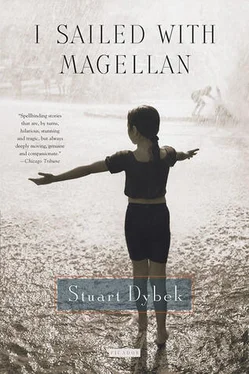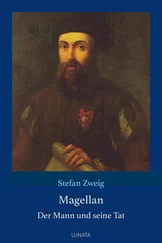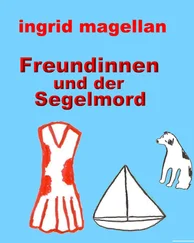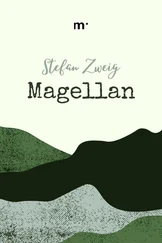Then, one year, Tito Guízar actually showed. Down Washte-naw, heading for Twenty-second, he came riding right behind the Virgin, not on a palomino but on a prancing white horse whose mane blew in the feathery twirl of the early snowfall. The horse left pats of golden manure steaming in the street, while Tito Guizar, dressed in black leather chaps studded with silver, his guitar strapped across his back like a rifle, waved his sombrero, blessing the shivering crowd that lined the sidewalks to see him.
As the procession approached St. Roman Church, a motorcycle gunned to life, spooking the white horse, and while Tito Guízar whoaed at the reins, a Harley rumbled out of the alley beside the rectory. It was pulling Sharky, who was attached to the rear fender by a clothesline like a coachman commanding the reins of a carriage. The Harley was driven by Cyril Bombrowski, once known as Bombs. He’d been a motorcycle maniac until, doing seventy down an alley, he’d collided with a garbage truck. He had a metal plate in his head and didn’t ride much anymore, as he was prone to seizures since the wipeout. Now people called him Spaz, and when he rode down the street, it was a tradition that whoever saw him first would yell a Paul Revere — like warning: “Spaz Attack!”
No one yelled this time. Behind Spaz and Sharky, a procession of the disabled from the parish emerged from the alley. A couple of World War II vets, mainstays from the bar at the VFW Club, one with a prosthetic hook and the other with no discernible wound other than the alcoholic staggers; and Trib, the blind newspaper vendor; and a guy who delivered pulp circulars, known only as — what else? — the Gimp, pushing his wheelchair for support; and Howdy, who’d been named after Howdy Doody because his palsy caused him to move like a marionette with tangled strings.
It was a parade of at most a dozen, but it seemed larger-enough of a showing so that onlookers could imagine the battalions of wounded soldiers who weren’t there, and the victims of accidents, industrial and otherwise, the survivors of polio and strokes, all the exiles who avoided the streets, who avoided the baptism of being street-named after their afflictions, recluses who kept their suffering behind doors, women like Maria Savoy, who’d been lighting a water heater when it exploded, or Agnes Lutensky, who remained cloistered years after her brother blew off half her face with a shotgun during an argument over a will.
With their canes, crutches, and the wheelchair, it looked more like a pilgrimage to Lourdes than a parade. They’d been assembled by Sharky and now marched, although that’s hardly an accurate word for their gait, beneath the banner of a White Sox pennant clamped in a mop stick that the Gimp had mounted on his beat-up wheelchair. The Gimp never sat in his chair but rather used it like a cart, piling it with bags of deposit bottles and other commodities he collected while delivering the circulars no one read. Today, the chair was empty of junk.
Their flag bore no symbol of allegiance, no slogan of their cause other than “Go Sox,” but what must have fueled Sharky’s outrage all along became suddenly obvious: they were at once the most visible and the most invisible of minorities. Instead of bit players out of the Gospels, fodder for miracles, the Halt and the Lame were in for the long haul, which required surviving day to day.
As they passed the church, Sharky raised a wooden hoof, not in blessing or salute — more as if scoring the winning goal — and on cue those parading behind him raised their fists. At that moment, Ralphie, wearing a cap and bundled in a checked scarf, stepped out of the crowd lining the curb, catching everyone by surprise, even Chester, who couldn’t do anything more than exclaim, “Hey, where you going?”
By then Ralphie had put on a burst of speed — the first time I’d ever seen him run — and caught up to the Gimp, climbed up on the wheelchair, and raised his fist, too.
Ralphie died a few weeks later, on Gwiazdka. The word means “Little Star” in Polish, and it’s what Christmas Eve was sometimes called in the parish. At midnight mass kids too young to be altar boys would file up the aisle to the manger carrying goldpainted stars on sticks. Had he been alive, Ralphie would have been among them. He was buried in the navy blue suit already purchased for the First Holy Communion he would have made that spring.
That was an observation made repeatedly at the wake, and afterward, at the Friday night bingo games in the church basement, and at bakeries and butcher shops and pizzerias and taquerias and beauty parlors and barbershops and corner bars: “Poor little guy didn’t make it to his Holy Communion,” someone would say.
And someone would likely answer, “They should of made an exception and let him make it early.”
“Nah, he didn’t want to be no exception. That’s how he was. He wanted to make it with his class.”
“Yeah, he was a tough little hombre, never wanted special treatment, never complained.”
“You know it. Always thumbs-up with him.”
“God should of let him make it.”
“Hey! You start with that kind of talk and there’s no stopping.”
“Yeah, but just for this once, if I was God, that kid walks up there for his First Communion. Then, if it’s his time, so be it.”
“If you was God we’d all still be waiting for the Second Day of Creation while you slept off your hangover from the Big Kaboom. God knew he didn’t want to be no exception. He made him that way.”
“Yeah, he made him with blue fucking skin, too.”
“Hey, maybe that was God’s gift to us. Somebody too sweet for the long term in this world. Somebody to be an example—‘A little child shall lead them,’ like Father Fernando said at the service.”
“Talk about hungover, that priest was still shitfaced. The night before he was pounding tequila at Juanita’s till they eighty-sixed us out into the goddamn blizzard — snow piled so fucking deep we couldn’t hardly get out the door. Me and Paulie have to help him back to the church, then Paulie falls in a snowbank, and while I’m digging Paulie out, Father Kumbaya decides to take a leak. I look up and there’s our new padre waving his peter in the middle of Twenty-sixth.”
“So, big deal, he’s a human being. It was a beautiful service, he did a good job. I thought that older brother was a little weird, though, guarding the casket like a rottweiler. Somebody shoulda told him it was all right to cry. What’s his name, anyway?”
“I don’t remember.”
“That little Ralphie was a saint. Don’t be surprised if someday they don’t canonize him.”
“I think there’s gotta be like miracles for that.”
“Yo, that kid was a living miracle. Maybe that’s it — why God put him here — what Little Village will be famous for: the Blue Boy! Mark my words, people will come from all over like they do to places in the Old Country … Our Lady of Fatima, the Little Infant of Prague. Know what I’m saying?”
“Yeah, somebody always figures out how to make a buck off it.”
A year later there were yet to be miracles, at least none I’d heard about. But the Blue Boy wasn’t forgotten. As we approached another Christmas vacation and the first anniversary of Ralphie’s death, Sister Lucy, our eighth-grade teacher, assigned a composition on the meaning of Christmas, and dedicated it to Ralphie’s memory. Chester was in our class, and at the mention of Ralphie, Sister Lucy smiled gently in his direction, but he just stared at his hands. He’d been a loner since his brother’s death, and all but mute in school. We’d heard the rumor that Chester periodically showed up, only to be repeatedly turned away, at the blood bank on Kedzie where the alkies went to trade their blood for wine money.
Читать дальше












